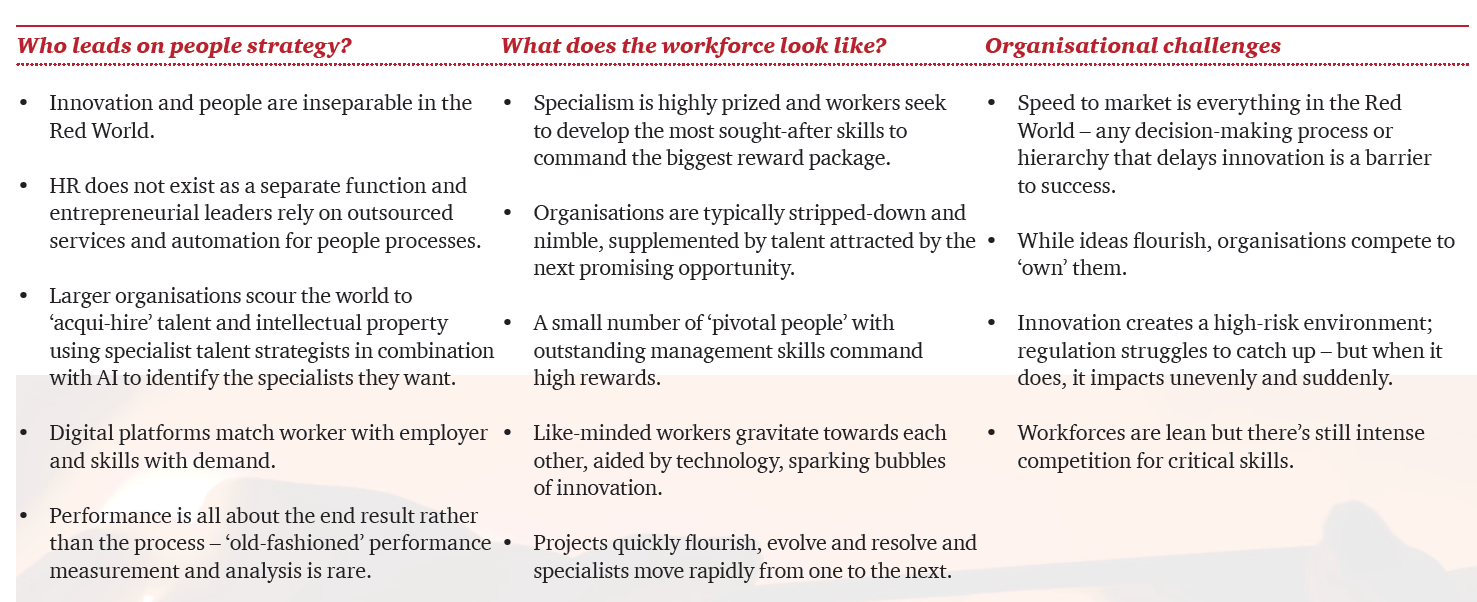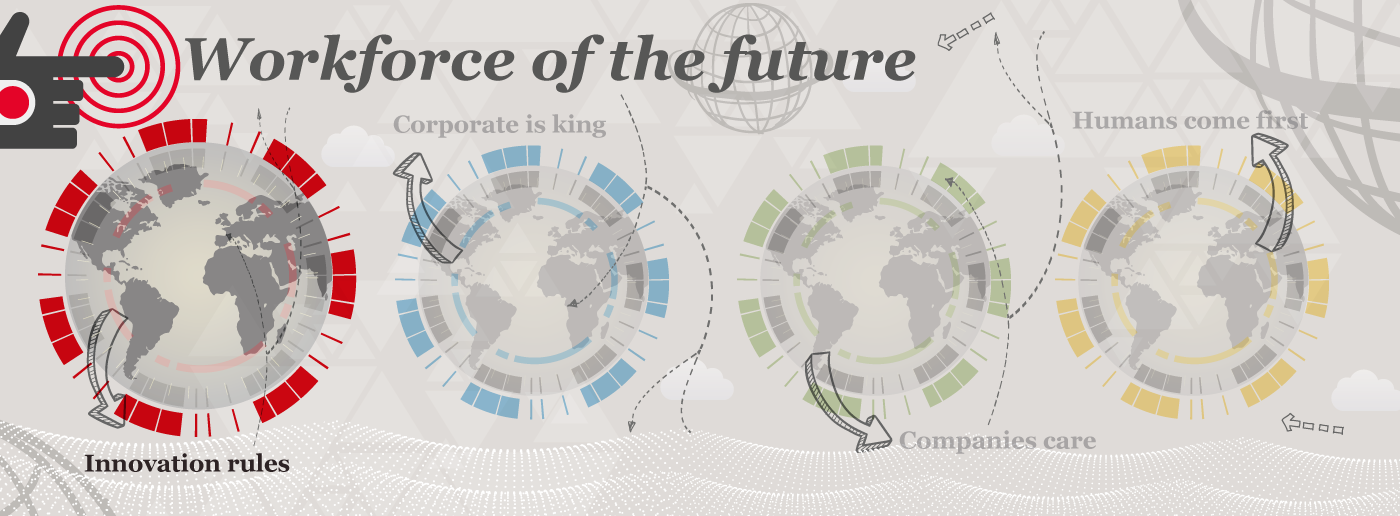Automation and ‘thinking machines’ are replacing human tasks, changing the skills that organisations are looking for in their people. What will the future look like? In this new weekly series, we’re presenting four worlds of work for 2030 which will kickstart your thinking about the many possible scenarios that could develop, and how to best prepare for the future. In this post, we’re exploring the red world where innovation rules. How would you fit in it?
The red world: innovation rules
In the red world, organisations and individuals race to give consumers what they want. Innovation outpaces regulation. Digital platforms give outsized reach and influence to those with a winning idea. Specialists and niche profit makers flourish.
Here are the main features of this world:
A world of innovation with few rules
The Red World is a perfect incubator for innovation. Indeed, new products and business models develop at lightning speed, far more quickly than regulators can control. In addition, technology encourages the creation of powerful, like-minded, cross-border social ‘bubbles’. In response, businesses innovate to create personalisation and find new ways to serve these niches. There are high rewards on offer for those ideas and skills that best meet what companies and consumers want. But in a world with few rules, the risks are high. Today’s winning business could be tomorrow’s court case.
Agility and speed are essential
Big business has been outflanked in a digital-enabled world that’s teeming with small entrepreneurial companies. Digital platforms match worker with employer, skills with demand, capital with innovator, and consumer with supplier. This allows serial entrepreneurs to reach far beyond their size in terms of influence and scale. As they’re anxious to compete, larger employers fragment to create their own internal markets and networks to cut through old-style hierarchies and encourage and reward workers to come up with new ideas. As a result, the pace of development and testing of new products and services has accelerated, increasing the risk of brand damage and failure.
What it means for workers
Specialism is highly prized in the Red World and a career, rather than being defined by an employer or institution, is built from individual blocks of skills, experience and networks. Near-zero employee organisations are the norm. As a matter of fact, organisations of a few pivotal people use technology, the supply chain and intellectual property, rather than human effort and physical assets, to generate value.
The commercial value of learning takes precedence. Indeed, a university degree is seen as less valuable than specific and relevant skills or experience. Workers know that the most sought-after skills will mean the biggest reward package. Many move frequently and stay only as long as the project or business lasts. Contract negotiations are key and ownership of intellectual property and the freedom to work are as important as financial incentives.

How would you fit in this world? Share with us your feelings and stay tuned for the other worlds.

